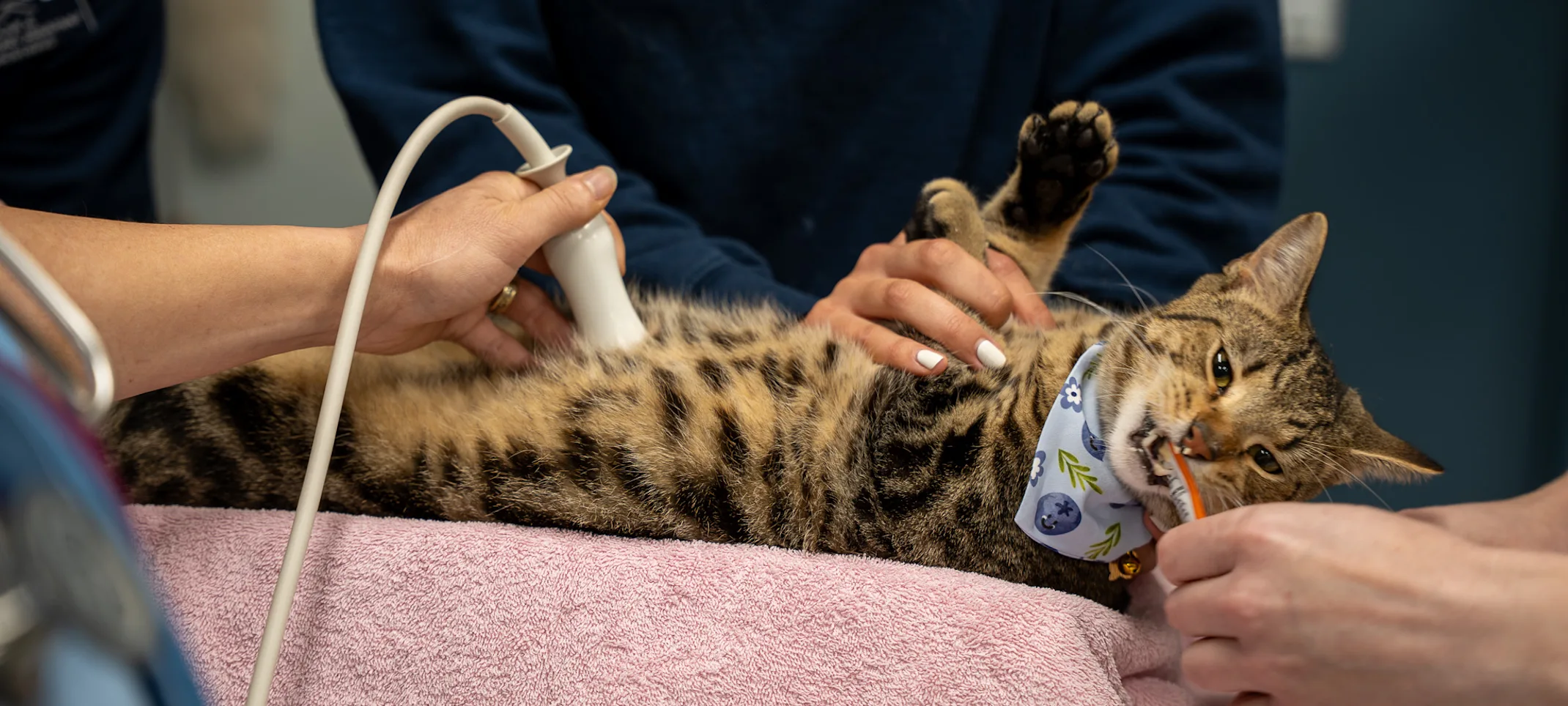Civic Feline Clinic
Laboratory Services
There are a myriad of laboratory diagnostics that our veterinarians can use as necessary to diagnose disease and to evaluate the effectiveness of therapy. We offer both in-hospital and referral laboratory services for all of your cat’s diagnostic needs.

Overview
Since cats cannot talk, it is a greater challenge to understand when and how they are not feeling well. Cats, in particular, instinctively mask symptoms of disease or injury. Diagnostic testing is one option for identifying problems and initiating appropriate treatments as early as possible.
Why would my cat need laboratory work?
Most lab work is initiated based on physical examination during wellness or illness exams. They may be an important aspect of assessing and treating urgent care or emergency patients.
When is laboratory work necessary?
We recommend regular testing to evaluate and monitor the health of your cat. If any problems are noted during routine screening we will develop appropriate treatment. Any time your friend is exhibiting unusual behavior or symptoms of injury or disease, lab work may be part of our diagnosis.
How do veterinarians use laboratory work?
To ensure a proper diagnosis, we first examine your pet by looking at their eyes, ears, and skin and checking their cardiovascular, neurological, gastrointestinal, and skeletal systems for any abnormalities. We will then perform blood and/or urine tests if necessary to check their kidneys, liver, pancreas, and endocrine system. Based on your pet’s condition, we may recommend further diagnostic testing.
If you’re concerned that something may be wrong with your pet, please call us to schedule a medical assessment.
